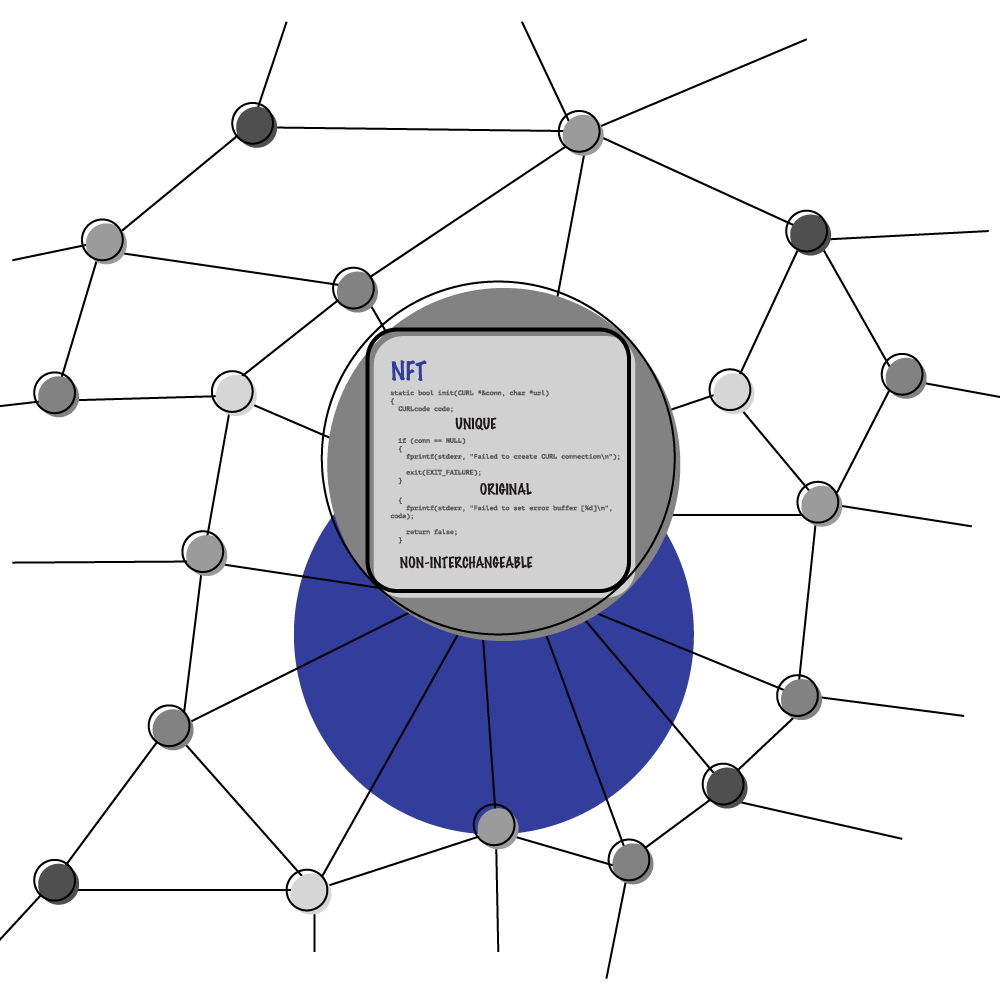Non-fungible Tokens (NFTs) and Copyright

NFTs (non-fungible tokens) have been taking a huge toll in the world economics today. It has become essential for all artists and investors to know the basics functions and the laws related to technology and intellectual property. However, it is also important to note that the courts are still in the process of cracking the concept of artistic relevance of an NFT and the original work. In order to further understand about the legalities of the NFTs, it is important to know how does an NFT function.
What are NFTs?
A blockchain is a large electronic database that stores data in an organized structure. NFTs is an intersection of blockchain technology and creativity. In simpler terms, NFTs are unique crypto tokens which are managed in the blockchain and the blockchain tracks the ownership and transaction of each individual NFT. When NFTs are being minted, they are creating a smart contract (which is also known as the software code). Such minting enables the digital asset to be uniquely identified and declares the NFT as authentic by granting a non-fungible authentic certificate. The major difference between an NFT and any other Bitcoin is that bitcoins are interchangeable among different digital wallets. NFTs on the other hand have unique IDs and various metadata that cannot be replicated by any other token. This originality and scarcity increase the value of the NFTs and make them ‘attractive’.
To sum up, anything that can be digitized can be turned into an NFT; the original work is only needed in the first step of the process to create the unique combination of the token ID and the contract address. So, in principle, NFTs have very little to do with copyright.
Ownership and Copyright
When an NFT is purchased, only the ownership of the particular copy of the NFT gets transferred in the form of cryptographically signed receipt. It is essential to note that the ownership does not extend to every copy of the work and the copyright of the NFT still belongs to the creator. Only if the creator specifically agrees to transfer the copyright to the NFT owner through licensing, the underlying IP rights get transferred.
With regard to the copyright issue, it is pertinent to note that most of the non-fungible tokens are a metadata file that has been encoded using a work that may or may not be subject to copyright protection because it mostly consists of an existing work that has been digitized.
So far as purchasers, we actually do not own the entire ownership over the clippings or the deleted scene as a whole, but rather just the one copy of the NFT that is being sold. However, you can resale the NFT in any secondary market and sometimes it is the resale value that adds up to your investment.
Infringement of IP rights?
The NFT owner does not acquire the rights to take pictures of the creative work in the NFT and to resell it through a derivative work. However, if the copyright is transferred, the purchaser will be allowed to reproduce, share copies or create derivative works of the NFT but without the transfer of copyrights, which would be considered as an infringement attracting provision from the Copyright Act. The terms and conditions must also be read and understood before purchasing the NFT in order to know how much we can use the NFT.
However, only the right of communication to the public could be infringed through a link in an NFT, and in such instances there is a causal connection between the token and the work. However, as an NFT is simply a code, it is not a substantial reproduction of the work which does not involve any infringement.
Conclusion
To sum up, it can be concluded that NFTs and copyright can be intertwined however, mere transfer of NFT does not mean transferring the rights of copyright as a whole. The marketplace for the trade of NFTs is having keen eyes to watch for any infringement. However, it is very early to actually devolve around the IPR aspects and NFTs, because NFTs are still in infancy stage in India without any dispute, on this behalf.

